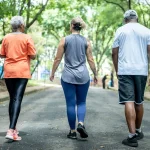Even after a 24-hour strike planned by the largest medical group in the nation came to an end on Sunday, several junior physicians in India refused to return to work, calling for immediate justice for a colleague who had been raped and killed.
Following the death of the 31-year-old postgraduate student of chest medicine in the early hours of August 9 in the eastern city of Kolkata, medical professionals nationwide have staged rallies, marched by candlelight, and refused to see non-emergency patients for the past week.
Following the gang rape and murder of a 23-year-old student on a moving bus in Delhi in 2012, women campaigners claim the event at the British-era R.G. Kar Medical College and Hospital has brought attention to how women in India still suffer despite harsher laws.
The victim’s father, who cannot be named according to Indian law, told reporters late on Saturday, “My daughter is gone but millions of sons and daughters are now with me,” referring to the doctors who were protesting.
“I feel like we will benefit from this and it has given me a lot of strength.”
Following the 2012 incident, India made significant reforms to the criminal justice system, including stiffer sentencing guidelines. However, proponents argue that these measures have not gone far enough to prevent violence against women.
The Indian Medical Association, whose walkout ended at 6 a.m. on Sunday, informed Prime Minister Narendra Modi that he must step in to guarantee hospital employees were safeguarded by security procedures similar to those at airports because 60% of India’s doctors are women.
In a letter to Modi, it stated that “all healthcare professionals deserve peaceful ambiance, safety, and security at workplace.”
While private institutions resumed regular operations, nearly 6,000 trainee doctors at government hospitals in Modi’s home state of Gujarat remained away from non-emergency medical services on Sunday for a third day.
The Junior Doctors’ Association president of B.J. Medical College in Ahmedabad, Dr. Dhaval Gameti, stated, “We have unanimously decided to continue our protest to press for our demands.”
“We are providing emergency medical care, but we are not participating in routine ward or out-patient department work, out of concern for our patients.”
“May put an end to emergency services”
While it forms a committee to recommend steps to strengthen protection for medical personnel, the government has urged physicians to resume their duties in order to treat the growing number of dengue and malaria cases.
IMA authorities reported that while Sunday is normally a holiday for non-emergency cases, the majority of doctors returned to their regular duties.
Uttar Pradesh’s chief IMA, Dr. Madan Mohan Paliwal, stated, “The doctors are back to their routine.” Uttar Pradesh is the state with the largest population. “If the government does not take any stringent measures to protect doctors, then the next course of action will be determined. and we could also suspend emergency services this time.
However, the All India Residents and Junior Doctors’ Joint Action Forum announced on Saturday that it will persist in a “nationwide cease-work” and gave police 72 hours to carry out a comprehensive investigation and make arrests.
Junior physicians and interns have not returned to work, according to Dr. Prabhas Ranjan Tripathy, additional medical superintendent at the All India Institute of Medical Sciences in the eastern city of Bhubaneswar.
He informed Reuters, “There are demonstrations today as well.” “The reduction in manpower puts a lot of pressure on others.”
For almost a week, unrest and protests have shook R.G. Kar Hospital. Police outfitted themselves in riot gear and forbade gatherings of five or more individuals near the hospital for a week starting on Sunday.
In an order, Kolkata Police Commissioner Vineet Goyal justified the blocking of meetings, protests, and processions in order to prevent “breach of peace, disturbances of the public tranquillity.”








